#online psychometric test
Explore tagged Tumblr posts
Text
#psychometric test#psychometric assessment#psychometric evaluation#online psychometric test#psychometric profiling#psychometric assessment test#psychometric assessment tools#psychometric test for employment#psychometric test for hiring#online psychometric assessment#online psychometric test for recruitment#psychometric assessment test online#psychometric evaluation test#psychometric aptitude test#psychometric skills test#psychometric ability test#psychometric analysis test
0 notes
Text
#pay someone to take my psychometric test for me#pay someone to do psychometric tests#take my online psychometric test#take my psychometric test#pay someone to take my psychometric exam for me#online class expert#Online Class Expert
0 notes
Text
Best Hiring Process with Online Psychometric Assessments | Wheebox
Explore Wheebox online psychometric assessments to revolutionize your hiring process. Make informed decisions and effortlessly identify top talent. Get a free demo now.
0 notes
Text

A logical Aptitude Reasoning Tests that is widely used by corporate employers to help assess candidates during their recruitment process.
If you are going to take your real verbal reasoning test online, then make sure you Pass Online Reasoning Tests on our website i.e. www.passpsychometric.com.
Visit us : https://www.passpsychometric.com/
0 notes
Text
Canada admission consultants:- Anil Khare is a well-known international personality. He is best known as a consultant. Anil Khare helps students with career guidance and academics. If your child is facing problems with academics or is confused with their career, then it's time to call us. https://www.anilkhare.com/service/study-in-canada/

#IVY admissions consulting#Canada education consultants in Dubai#Psychometric test in Dubai#Study in Canada consultants in Dubai#Educational consultant in Dubai#Online study in UAE#Top educational consultant in the world
0 notes
Text
Psychometric Testing Online For Students
Testgrid is an Australian pre-employment assessment and talent development SaaS that combines psychology with data science expertise to empower organisations to accelerate performance, optimise selection, realise talent acquisition results and achieve their goals. Contact us to find out more details.
0 notes
Text

What is a Psychometric Test?
0 notes
Text
okay so i have always suspected that i was not neurotypical but like i live in eastern europe and i’m a woman, no one is going to diagnose me with asd but i was always curios and then on tiktok i saw this video where they talked about different psychometric tests for autism that are available online on embrace-autism.com and i was like you know what it would be fun to take at least one just to make sure that i actually don’t have asd but bitch i’m crying i’ve only taken the first one yet which is just like a quick assessment to see if you need to be further tested for autism (aq-10 if anyone’s interested) and it says if you score 6 or higher it’s indicative of autism – i scored 8 so i’m gonna take the rest of them too girl i was not expecting this i thought it was only in my head
41 notes
·
View notes
Text
Jade: i hate you job applications i hate you psychometric aptitude testing i hate you CVs i hate you interviews i hate you online forms i hate you never hearing back i hate you cover letters
#homestuck#incorrect homestuck quotes#jade harley#mod terezi#yes! burning people! she's- oh wait she didn't get to that part yet#she should say it though
90 notes
·
View notes
Text
#big five personality test#personality assessment#online personality test#personality assessment test#psychometric personality test#pre employment personality test#personality test for hiring#personality assessment tools#personality aptitude test#personality development test#personality analysis test#personality assessment tests for employment#personality skills assessment#personality test
0 notes
Note
Hi!
I have been wondering if I might be autistic for about a year and a half now but it kind of comes and goes and I've never managed to reach a definitive conclusion as I'll get close and then see something that brings the imposter syndrome back again. I'm thinking about getting an autism assessment but was wondering if you have any advice for self-diagnosing?
Thank you and I hope you have a wonderful day!
Hi there,
There are some online tests you can take if you’d like. Online tests can be unreliable, but I think it’s a good step to figuring out if you’re neurodivergent or not. I’ll list some down below:
RAADS-R Test
I hope these tests helps you figure things out. Thank you for the inbox. I hope you have a wonderful day/night. ❤️
44 notes
·
View notes
Text
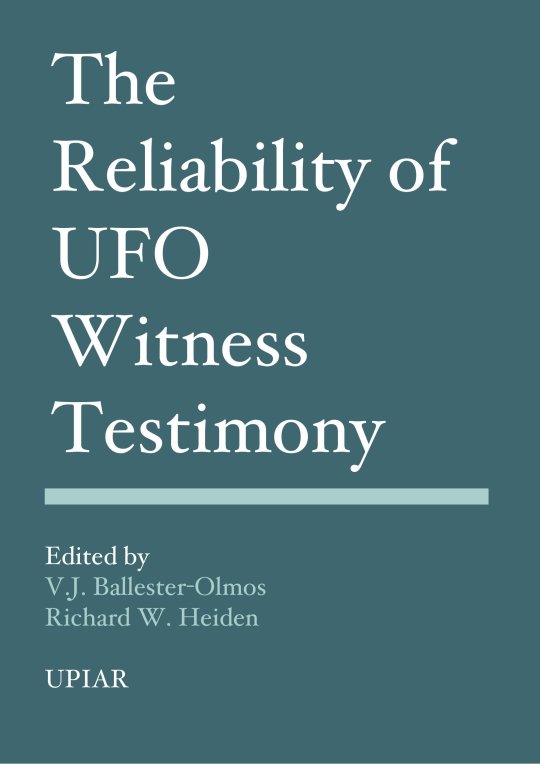
Book Release: The Reliability of UFO Witness Testimony (With a Chapter by Cláudio Tsuyoshi Suenaga)
V.J. Ballester-Olmos & Richard W. Heiden (Eds.)
For 76 years, casual observers around the world have reported sightings of aerial phenomena unexplainable to them. More elaborate personal experiences have been reported by others whose testimony speak of close interactions with fantastic flying machines that land, from which strange beings descend, and even kidnap the onlookers. In the absence of compelling physical evidence of the reality of these narrations, how should science study immaterial observations and test these claims? The very standard of reputable witness reliability is at stake here.
The Reliability of UFO Witness Testimony is the first major book to comprehensively focus on the discussion and current views on problems and challenges posed by the reliability of UFO testimonies. This is a cross-disciplinary compendium of papers by 60 authors from 14 different countries. They are specialists in social, physical, and biological sciences, including psychology (predominantly) as well as psychiatry, sociology, anthropology, history, philosophy, folklore, religion, journalism, engineering, computing, medicine, education, analysts with experience in the critical study of UFO perceivers, and other professionals. This volume shares thematically convergent ideas about the plausibility of alternate explanations for an alleged close-range UFO phenomenon.
The 57 chapters in this book are divided into seven section headings: Case Studies, Psychological Perspectives, On Witness Testimony, Empirical Research, Anthropological Approach, Metrics and Scaling, and Epistemological Issues. There, the subject matter is analyzed from statistical work to clinical assessment, psychometrics, comparative and evaluation inquiry, and other topic perspectives.
Some extracts from the Foreword, written by Dr. Leonard S. Newman, Professor of Psychology at Syracuse University:
"The contributors to this book include some very smart people. There are all sorts of issues to which they could be devoting their intellectual energy, and all sorts of scholarly and research contributions they could make. They don’t have to write thoughtful and rigorous chapters for a book called The Reliability of UFO Witness Testimony, but this is what they have done. And so, the work continues, as attested to by the papers in this volume. I’m not sure if there exists any collection of papers on any topic that can claim to comprehensively summarize everything that is currently known about it. But this one comes pretty close."
This 711-page book has been released online in the Academia.edu portal, from where it can be downloaded for free:
Simultaneously, UPIAR Publishing House (Turin, Italy) has published two softcover, A4 format print editions, one in black & white, another in full color (ISBN: 9791281441002). The book can be purchased through this link:
Four outstanding academics have provided praise notes to this volume. This is what they said:
Elizabeth Loftus, Ph.D., Distinguished Professor of Psychology at the University of California, Irvine, USA:
"When ordinary citizens claim to have extraterrestrial encounters, such as seeing UFOs or meeting with alien beings, what should we think? Did the alien abduction really happen or was it a hoax? Is someone deliberately lying? Are they false memories? Readers will be enthralled by the fascinating case histories that are presented in The Reliability of UFO Witness Testimony*, a volume where sixty experts examine these issues with depth and insight. These cases teach us a great deal about how humans come to believe they have experienced bizarre events that may have never occurred at all."
Steven Jay Lynn, Ph.D., Distinguished Professor of Psychology, Binghamton University (SUNY), USA:
"This captivating book will appeal to anyone interested in UFOs (and who isn’t?), the vagaries of memory, eyewitness perception and misperception, critical analysis of puzzling phenomena, and evaluating scientific vs. pseudoscientific claims. This volume ranks in the elite category of essential reading for students, scientists, and the seriously curious among us, and therefore has my highest recommendation. Bravo!"
Henry Otgaar, Ph.D., Professor of Legal Psychology, Maastricht University, the Netherlands, and Leuven Catholic University, Belgium:
"Claims of UFO sightings and experiences continue to fascinate us. This book has collected a unique and diverse set of case studies and critical articles on how such experiences unfold and what the authenticity of these claims is. The collection of these different articles is truly groundbreaking and is the first-ever complete assemblage concerning the validity of UFO testimony."
Benjamin E. Zeller, Ph.D., Professor and Chair of Religion, Lake Forest College, Illinois, USA:
"In referring to extraterrestrial contact, Carl Sagan said that extraordinary claims require extraordinary evidence. This fine book seeks to contextualize what such evidence entails. Its contributors analyze UFO sightings and cases both famous and obscure, recent and historical, and quite international in scope. They draw from an impressive range of methodological, academic, and scientific perspectives, and consider such topics as the nature of cognition, memory, types of belief and testimony, psychology, and the rationality of belief. Skeptics, believers, and scholars of ufology will all find this book fascinating!"
For additional information please contact:
UPIAR Publisher: [email protected]
Editor: V.J. Ballester-Olmos, [email protected]

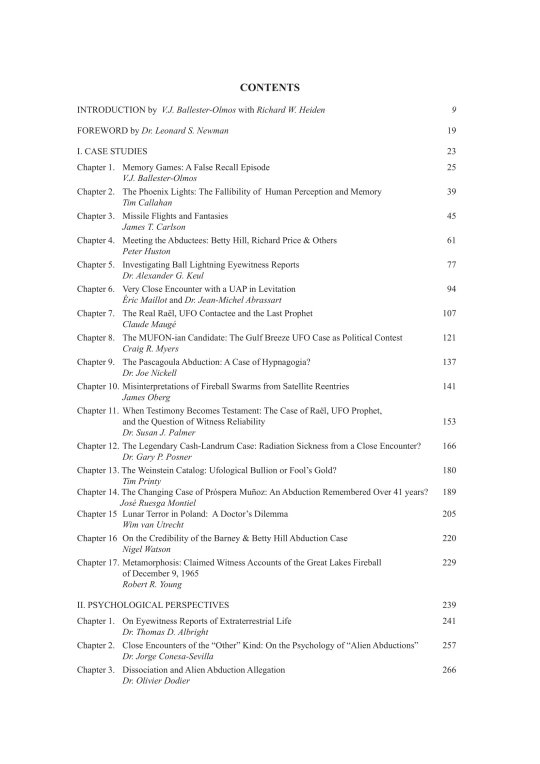
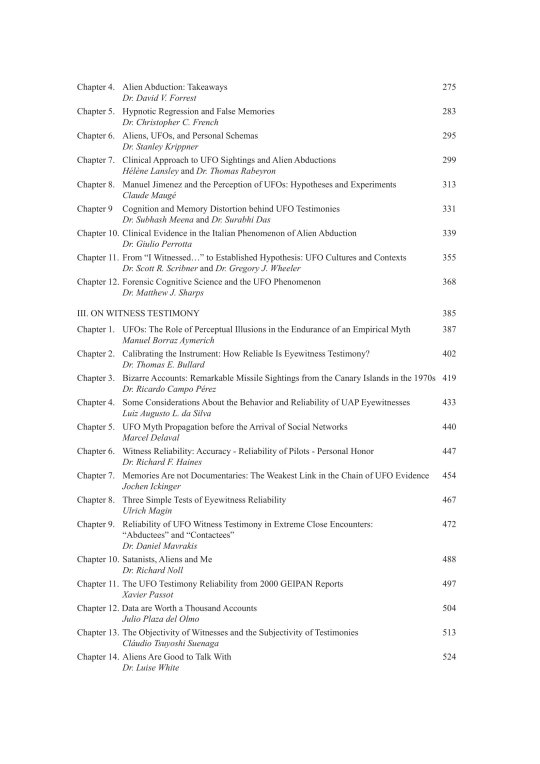
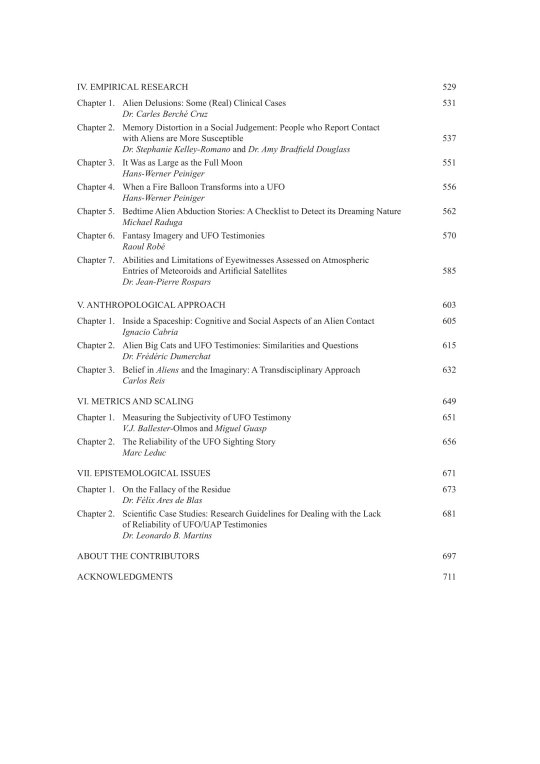
The Objectivity of Witnesses and the Subjectivity of Testemonies
Cláudio Tsuyoshi Suenaga
I had the honor of being one of the select few invited by the distinguished Vicente-Juan Ballester Olmos, one of the organizers and editors of this impressive scientific-academic book, together with the equally distinguished Richard W. Heiden, to write a paper on the "reliability of the testimony of witnesses of UFOs", a crucial aspect of ufological research, since, in the absence of material evidence of the phenomenon, this is the primary source we deal with, the "raw material", so to speak, to permeate our analyses, even more so for those who not only deals with "second-hand" reports, but gathers them directly from the witnesses themselves, in sometimes harsh and hostile field conditions.
In my contribution entitled "The Objectivity of Witnesses and the Subjectivity of Testimonies", I carried out a critical analysis of the general reference base of the UFO problem, the testimony, seen as a cultural source authentic and indisputable, but which presents serious distortions. One of the main points questioned by me was the exact value of the testimonies, which form the basis of the reports and, therefore, of the UFO phenomenon. I tried to give an adequate scientific treatment to these data and factors relegated to the background by ufologists: the subjective observational parameters, the perceptive aspects, the language and the historical-cultural context of the witness and the psychosociological variables, that is, everything that was disparagingly called "background noise", the "sociological reject" despised in detriment of the "signal".

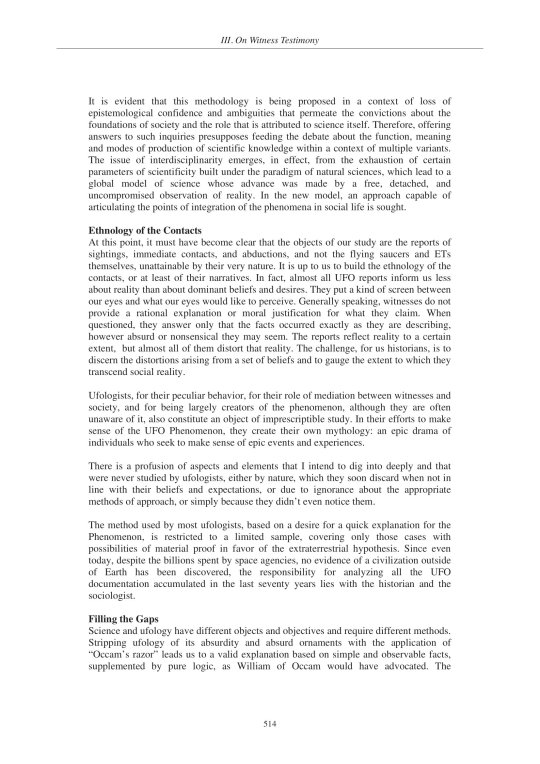
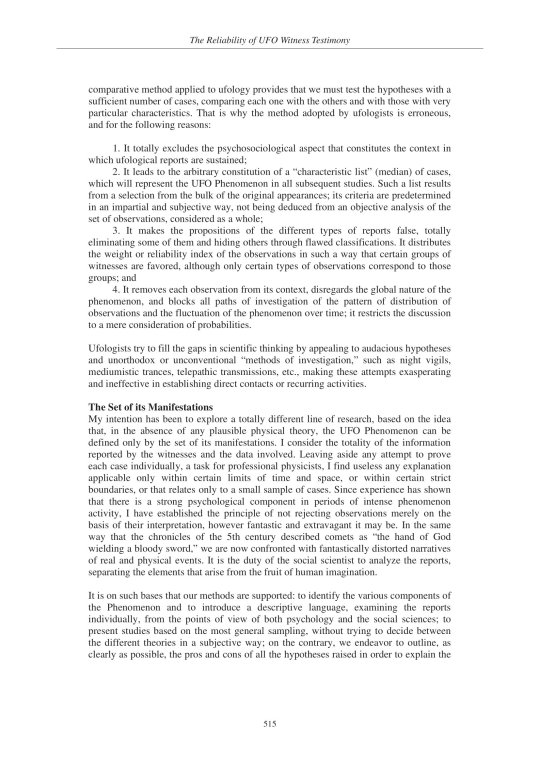
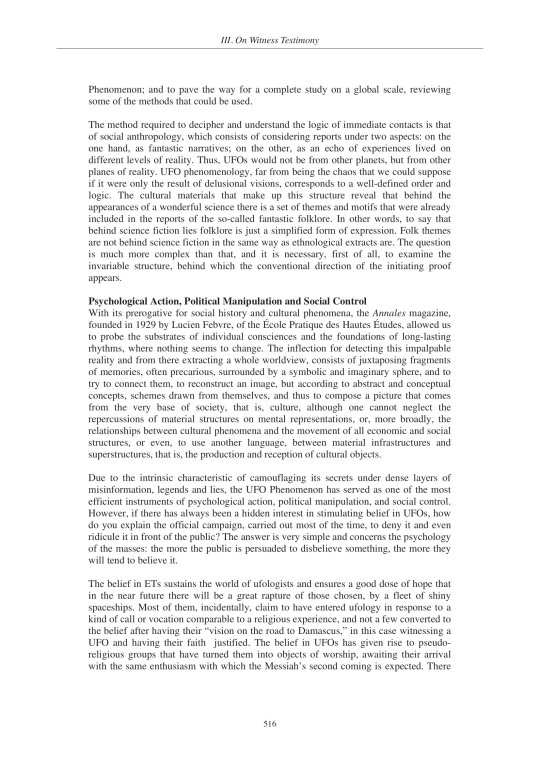
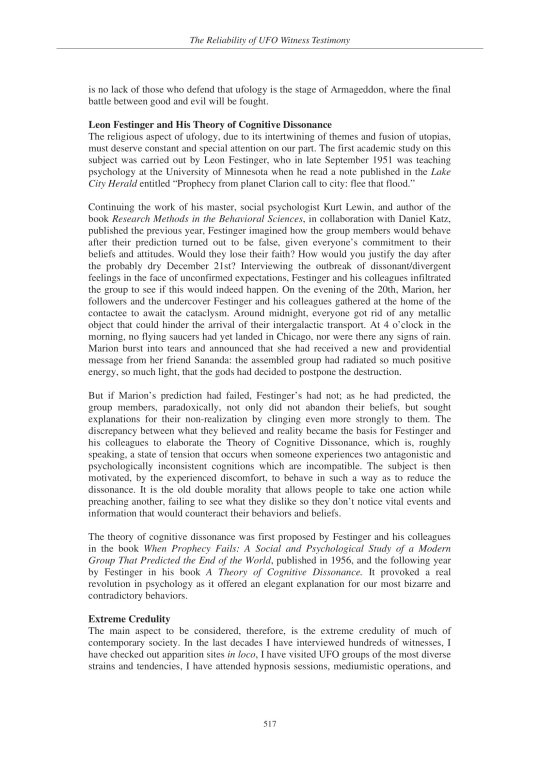
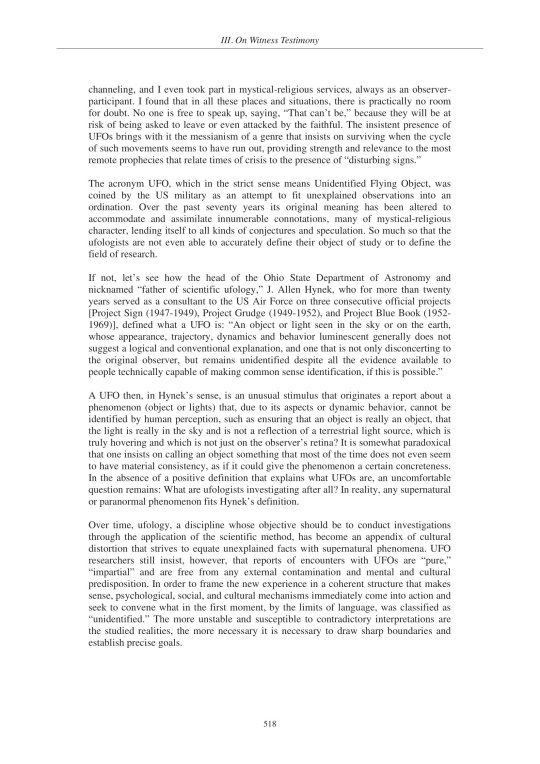
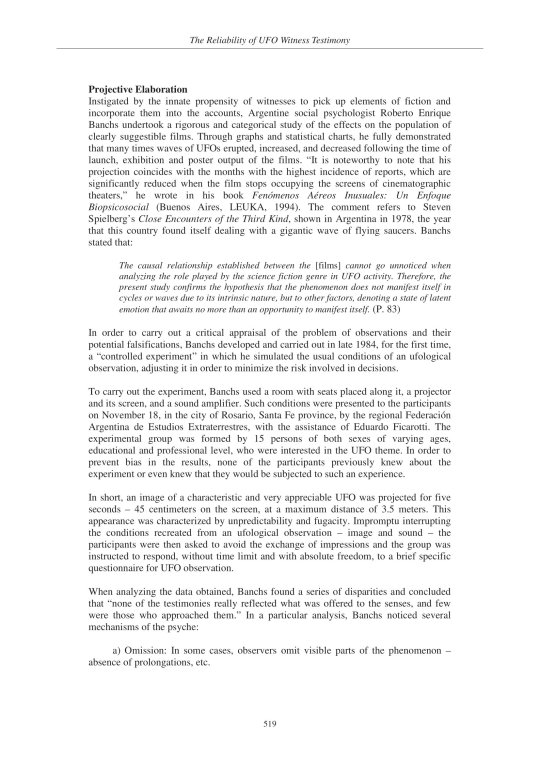
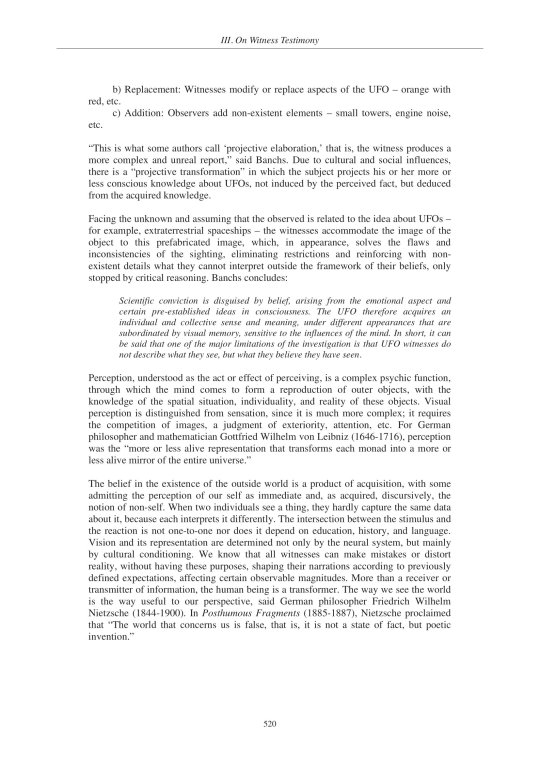
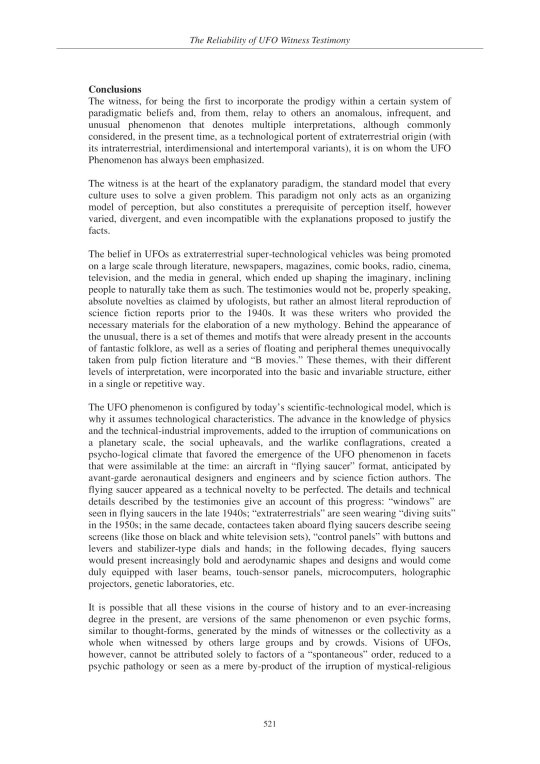

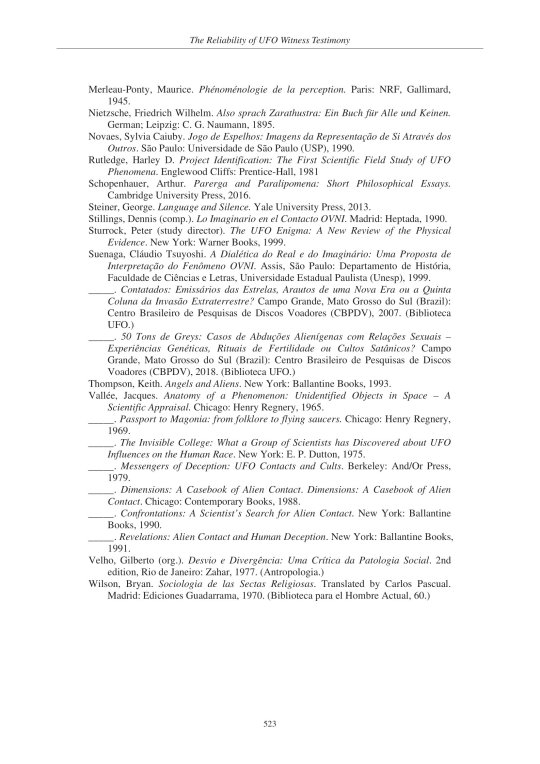
Consult and keep close at hand, therefore, this, the first major book to comprehensively focus on the discussion and current views on problems and challenges posed by the reliability of UFO testimonies. A cross-disciplinary compendium of papers by 60 authors from 14 different countries.
(large format, 711 pages)
You can download the full 711-page book on my Patreon:
#ufologia#ufos#ufo phenomenon#ufo sightings#ovnis#extraterrestres#história#aliens and ufos#antropologia#sociology#historia#psicologia#religião#testemunho#livro#classic academia#books and libraries#science#skepticism#ceticismo#testimony#the witness#suenaga yoroshiku onegaishimasu
29 notes
·
View notes
Text
psychiatrist vs psychologist vs therapist
A question for Americans (and others if someone else wants to chime in).
So recently I became very curious about the distinction of these professions in the US (and around the world, as well, but the media I've been consuming has been, for the most part, American).
I keep hearing these words used interchangeably, and I began to wonder if maybe it wasn't always necessarily as much as lack of knowledge as, perhaps, differences in culture and education.
(Tbh I wasn't aware of all the nuances myself, so to explain the differences in a most comprehensive way I've searched for online acrticles that could explain it better, so the definitions below are translated (and sometimes also edited) paragraphs of online articles and not my own words.)
A psychiatrist is a medical doctor. To become a psychiatrist, you must gain a medical degree (after six years of study at the university) and then undergo an additional five years of internship in the field of psychiatry (similarily to any other medical doctor such as surgeon, endocrinologist, gynecologist etc.)
The specialization lasts about five years and includes theoretical classes and an internship in a designated medical facility. Only after finishing those additional five years of study can a medical graduate obtain the right to practice as a psychiatrist.
A psychiatrist is, therefore, primarily a physician who can work in medical facilities - treating patients with mental disorders and diseases. He also has, unlike a psychologist, the ability to prescribe medication to patients for the disorders they suffer from, as well as order a blood test or some other additional medical examinations.
A psychologist, on the other hand, is a person with a master's degree in psychology (the education lasts for five years). A psychologist, however, doesn't deal only with diseases and mental disorders but can also provide psychological support in difficult moments of life, career counseling and similar areas.
Not every psychologist works at their own office or provides consultations. There are psychologists who recruit employees or conduct training. There are psychologists who deal with psychometrics (development of psychological tests), scientific work, consumer research, etc.
Unfortunately, the profession of a psychologist in Poland has not yet been properly regulated or controlled (as is the case with doctors). Therefore, there are abuses by people who have completed postgraduate studies or courses in psychology in the title and call themselves psychologists despite the lack of five-year master's studies.
There is also somone called a clinical psychologist who has attained the master's degree in psychology and then completed an additional four-year specialization in psychology. They have more practical experience in the diagnosis and treatment of mental disorders. Clinical psychology is a discipline applied to healthcare. A clinical psychologist is a master of psychology with competencies in the field of specialization in the clinical psychology of adults, children and adolescents.
A psychotherapist is a person who has completed higher education and, in addition, a minimum of four years of psychotherapy training. Psychotherapists are most often psychologists, but they can also be doctors, midwives, nurses, sociologists or educators. To some extent, their competences overlap with those of a clinical psychologist. There are several leading schools of psychotherapy, which means that the training of a psychotherapist may emphasize various elements of the functioning of the psyche. Training in psychotherapy is long and very expensive.
(It should be noted that a psychiatrist, like a psychologist, is not licensed to conduct psychotherapy, unless they have completed postgraduate training in psychotherapy. A psychiatrist deals primarily with the diagnosis, prevention and treatment of mental illness.)
A therapist is an oft confused and overused word. Many may call themselves a therapist because they have completed one-year postgraduate studies in, for example, behavioral therapy for children with autism. Still others have master's degrees in pedagogical therapy with children with dyslexia. For others, completing a weekend-long therapy course is enough to call themselves a therapist. There are also occupational therapists working, for example, with children with disabilities. A therapist does not have to be a psychotherapist or even a psychologist.
Again, I wasn't aware of everything that has been said here, though I think it is safe to say that most people in my country (or at least the people I've come into contact with) do distinguish the major diferrences between a psychiatrist and a psychologist.
I wrote this post because, like I said before, I was often confused by the their perception in (mostly, I'd imagine) American media (tv shows, movies, books, online videos and articles, blogs and fanfics.) I'm curious, does the education look similiar in other countries? How easy/hard is it to study in those fields?
(I know I could search for the answers on the Internet but I guess I'd like to try a more social approach of asking actual people first).
(Sources for the articles can be found here, here, and here.)
35 notes
·
View notes
Text

Psychometric Test
0 notes
Text
Both the choice of questions, the ways they are phrased, and the way the answer-system is conceived will return very high scores for a person with moderate to severe depression and/or anxiety, as well as for people who simply have hobbies and interests they are passionate about. (...) Does all this mean I am autistic? Just because a tests says so?
The test is an assessment for monotropism, not autism.
From https://monotropism.org:
Monotropic minds tend to have their attention pulled more strongly towards a smaller number of interests at any given time, leaving fewer resources for other processes. We argue that this can explain nearly all of the features commonly associated with autism, directly or indirectly. However, you do not need to accept it as a general theory of autism in order for it to be a useful description of common autistic experiences and how to work with them.
For those who like reading long-ass study abstracts, the below is taken from the Questionnaire's "scored based on their findings" link's 65 page MQ_preprint_manuscript-tables-supplement.pdf, titled...
Development and Validation of a Novel Self-Report Measure of Monotropism in Autistic and Non-Autistic People: The Monotropism Questionnaire
Monotropism seeks to explain autism in terms of attention distribution and interests. Despite having strong subjective validity to autistic people, and potential to explain the overlap between autism and Attention Deficit Hyperactivity Disorder (ADHD), it has been little investigated formally. This is in large part due to lack of reliable and valid measures to capture the construct. In this study, we aimed to develop and validate a novel self-report measure, the Monotropism Questionnaire (MQ), in autistic and non-autistic people. The MQ consists of 47 items, which were generated by a group of autistic adults based on their lived experience and academic expertise. A sample of 1,110 participants (756 autistic, 354 non-autistic) completed the MQ online, (...) Attention-deficit/hyperactivity disorder (ADHD) and autism status were both significantly associated with higher mean monotropism scores. Overall, the MQ had good psychometric properties. (...) Autism is diagnosed in the presence of a characteristic pattern of externally-observed features in two domains: social communication and interaction and restricted and repetitive behaviours and interests (APA, 2013). Although all autistic people1 are diagnosed using highly similar clinical criteria, there is much variability in their experience (Happé & Frith, 2020). One driver of this variability is the fact that autism can co-occur with various other diagnoses, one of the most common being Attention Deficit Hyperactivity Disorder (ADHD), with the rate of ADHD in autism recently estimated at 38.5% (Rong et al., 2021). The overlap has been linked to atypical attention profiles, which are a central feature of both conditions (Murray at al., 2010). However, to date, there is no major, empirically-tested theoretical account of autism that centres attentional differences. A potential explanation for the role of attention in autism is offered by Monotropism (Murray Lesser & Lawson, 2005), a theory of autism based on the lived experience of autistic people. It conceptualises the mind as an interest-system guide their allocation of attention and different interests can be salient at different times. Here, interest is understood as anything that commands an individual's attention. Meanwhile, attention is conceptualised as a limited resource for which different cognitive processes are competing. Dinah Murray and colleagues (2005) posit that a monotropic mind has fewer interests aroused at any given time, with each one being allocated attention at a high concentration this attention allocation strategy tends to apply to autistic people. In contrast, non-autistic individuals are hypothesised to be polytropic: they allocate attention at varying intensity levels to cover a broader range of interests, which may be co-aroused at any given time.
hey I want to see something
take this quiz (https://dlcincluded.github.io/MQ/) and then tell me about your score.
if you're autistic plus another overlapping type of neurodivergent, choose the autistic option. self diagnoses are valid.
choose other neurodivergent if you are neurodivergent but not autistic. again, self diagnoses are valid.
check out the monotropism theory of autism (https://monotropism.org/)
#Reblog#long post#neurodivergence#neurodiversity#autism#polls#Monotropism Questionnaire#Monotropic#polytropic#autistic and non-autistic people#autistic people#non-autistic people#monotropism#Dinah Murray#Wenn Lawson#theory#theory of autism#Attention Deficit Hyperactivity Disorder#ADHD
30K notes
·
View notes
Text
Clear CEB psychometric tests easily with high scores

Psychometric Tests are considered the standardized tool mainly used for individual personality traits, mental abilities, aptitudes, and behaviors. Such types of tests are perfect for career development, education, and also, recruitment. They will give you great insights into how people think, interact, and react with others. We can divide them into three main categories such as personality tests, aptitude tests, and situational judgment tests. If you want to achieve a high score in CEB Psychometric Tests, then you should practice regularly, manage your time efficiently, review basics, and keep yourself calm. While practicing psychometric tests, you should answer all the questions truthfully and consistently. Apart from this, it would help if you stayed positive. You can even pay someone to sit CEB Test with a 100% money-back pass guarantee.
To outperform in psychometric tests, you can get assistance from an expert. PassPsychometric is one of the leading companies that provide the best assistance for all stages of the application process ranging from clearing online psychometric tests, writing resume/application, acing assessment centers, and making a lasting impression upon employers. They will assist you with passing different types of tests like logic, verbal, numerical, abstract, inductive, diagrammatic, personality, SJT, and other psychometric tests.
The tutors at PassPsychometric are here to cheat on proctored exams for instance, GRE, GMAT, IELTS, TOEFL, LSAT, and more. For Cheat on TOEFL, you can get assistance from them. Their staff members are specialized in a particular test type AND test provider. Being a top company, PassPsychometric offers a great level of professionalism to all clients. Keeping all the customers fully satisfied is their topmost priority. They provide a 100% pass guarantee offer to all clients. Their expertise areas include application guidance, Maths tuition, verbal reasoning tests, numerical reasoning tests, and many more.
If you are looking for assistance from expert GRE Test Takers, then you should contact them. To all the clients, they deliver all-inclusive employment and university services. With their assistance, PassPsychometric can pass different types of test formats such as Aon, Saville, SHL, mapTQ, Cubiks, IBM Corporation, TalentQ, Kenexa, TalentQ, and a lot more. Being a top company, PassPsychometric gives real-time support for interviews. For the best advice on interview preparation tips, interview attire, or clarification on assessment tasks, you can contact them. You can also check their online testimonials to get an idea of what others say about their services. So, what do you think? Contact PassPsychometric on [email protected] now to get the best assistance for proctored exams or psychometric tests.

For more information, you can visit our website https://passpsychometric.com/ or call us at +44 7534006552
0 notes